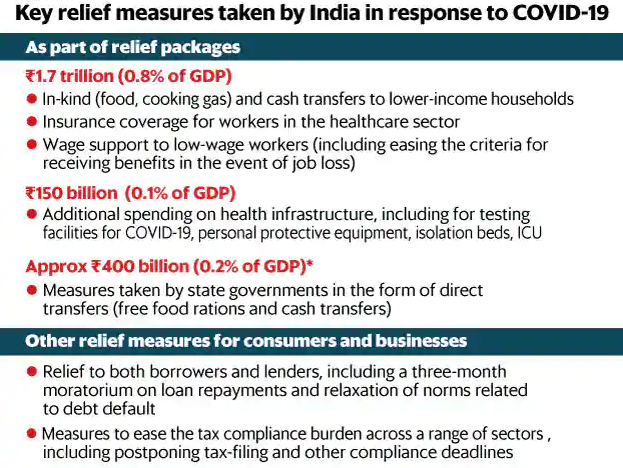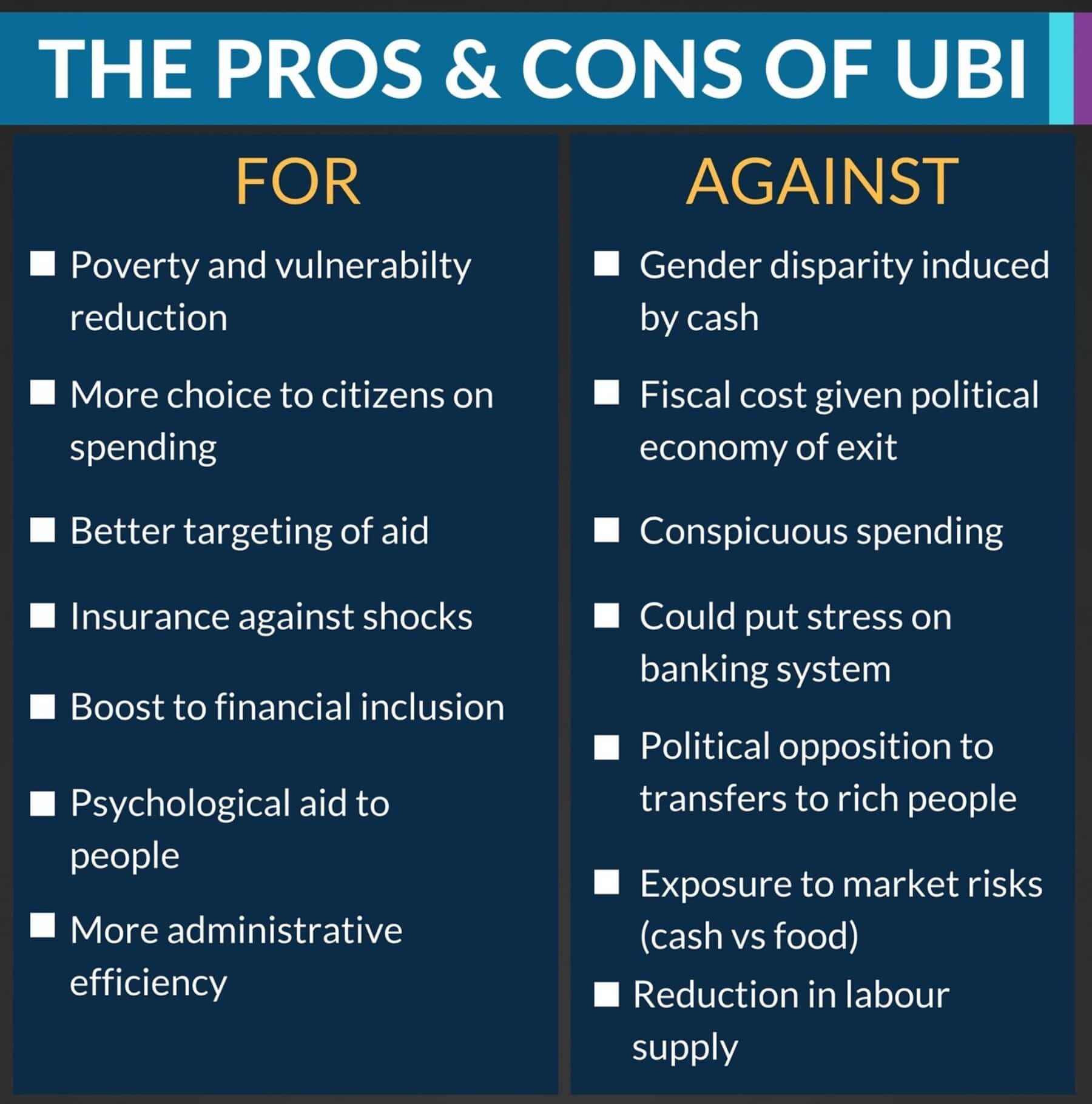- Home
- Prelims
- Mains
- Current Affairs
- Study Materials
- Test Series
 EDITORIALS & ARTICLES
EDITORIALS & ARTICLES
Why an emergency Universal Basic Income makes sense for India during the Covid-19 pandemic?.
In order to deal with the Covid-19 pandemic, the governments across the world have imposed measures like lockdown and social distancing. However, these measures have caused collateral damage to almost every sector of the economy, so much so that the IMF held the current economic crisis could be the worst ever since the Great depression 1929.
Thus, there is a need for the preservation of the socio-economic system while the Great Lockdown lasts and recovery following it.
Nobel Prize winning economist- Paul Krugman argued that the economic response to the crisis should have two components: First, an Immediate disaster relief component that ensures survival of both firms and workers who have been rendered idle. And, Second, a Stimulus component that aims to repair and restart production lines during the exit phase of the lockdown. Paul Krugman termed this current economic scenario as “coronacoma", the economic equivalent of a medically induced coma, in which some brain functions are deliberately shut down to give the patient time to heal.
In order to fulfil the first component and cater to the needs of the large section of population (mainly labour working in unorganised sector and daily wage earner) of India, the government can think of implementing Emergency Basic Income (EBI). EBI is a kind of Universal Basic Income provided during a crisis like the Covid-19, but subject to a rollback when normalcy returns.
Universal Basic Income – What is it?
- The Economic Survey of India 2016-17 has advocated the concept of Universal Basic Income (UBI) as an alternative to the various social welfare schemes in an effort to reduce poverty.
- Idea behind the Universal Basic Income is that every person should have a right to a basic income to cover his needs, just by virtue of being a citizen.
- UBI has three components:
- Universality- It is universal in nature.
- Unconditionality- There are no preconditions attached with the cash transferred to the beneficiary.
- Agency – Respecting the poor persons’ decision making ability and not having a paternalistic attitude towards them.
Need
- Due to lockdown, millions may lose their incomes and face difficulty in receiving things of daily necessities for survival. These economic crunches may also result in social unrest.
- The EBI provided through the direct cash transfer mechanism will not only arrest potential social unrest but also ensure that there is continued aggregate demand to sustain the economy.
- Further, some states have announced enhancement of rations under the Food Security Act.
- While providing additional foodgrains is useful, with broken supply chains and crumbling logistics, it may have its own challenges.
- Also, the circumstances, risk and shocks in which people are trapped in lockdown are varied. The EBI allows that individual to decide how such risks should be mitigated and how priorities are to be set.
- Thus, EBI will complement the steps (providing essential goods through PDS) taken by the government.
- The lockdown has dragged many people into the poverty trap. Thus, EBI may simply be the fastest way of reducing poverty induced by the lockdown.
- Existing welfare schemes are riddled with misallocation, leakages and exclusion of the poor. However, the trinity of Jan-Dhan, Aadhaar and Mobile (JAM) can enable proper implementation of EBI and can reduce inclusion and exclusion issues to a larger extent.

Bottlenecks
- Although most people have a unique ID by now (Aadhaar),the most vulnerable section of society doesn’t have Aadhar and a functional bank account or access to mobile or internet (for e-transfers).
- The Union Government has sought to provide Rs 500 per month to women in a household (during the lockdown). However, the amount is quite low to call it a significant income support.
- Already Indian government has been facing a financial crunch with respect to social sector schemes.Thus, providing an EBI may add to the fiscal burden of the government.

Road ahead
- The EBI programme with a fixed and transparent clause can inspire the confidence of both ordinary citizens and help resolve the trade-off between lives and livelihoods.
- EBI must also include an in-kind transfer component. The ratio of cash to in-kind transfers is something that is best left for states to decide.
- The Union Government can channelize the savings from the global crude oil price fall to fund EBI, without compromising macroeconomic fundamentals.
- There is need for a functional JAM (Jan Dhan, Aadhar and Mobile) system, as it will ensures that the cash transfer directly into the account of a beneficiary.
Source: Financial Express









 Latest News
Latest News General Studies
General Studies